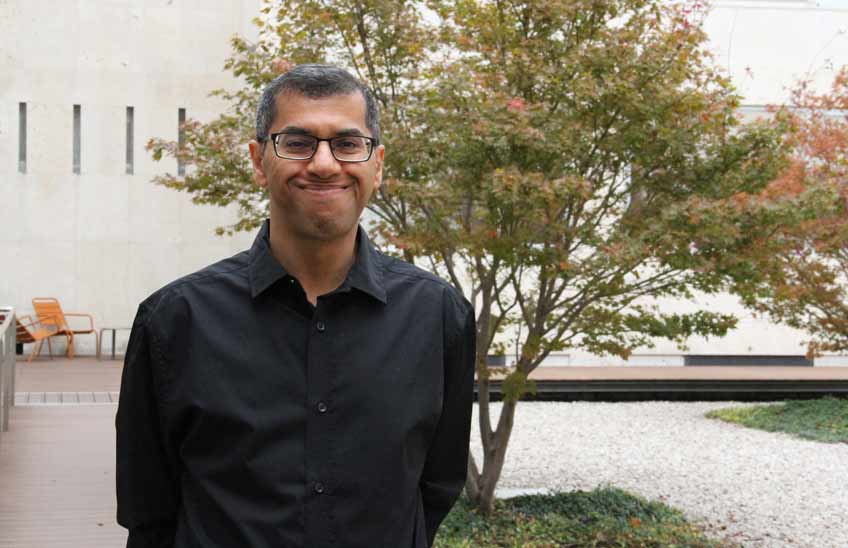"Ignoring the interlocutor by looking at the cell phone is less frequent in Spain than in other countries."
Yeslam Al-Saggaf, researcher visiting professor at the University of Navarra, suggests that the phenomenon of phubbing is a symptom of cell phone addiction.

FotoNatalia Rouzaut<br>/Yeslam Al-Saggaf ha sido invitado a participar en el Reto ICS 2022-2023 ‘Jóvenes, relaciones y bienestar psicológico’
22 | 11 | 2022
"The phenomenon of phubbing, ignoring the interlocutor by looking at the cell phone, is less frequent in Spain than in other countries such as Australia, Japan or Saudi Arabia". This was stated at the University of Navarra by Yeslam Al-Saggaf, an expert in social media and computer ethics at Charles Sturt University (Australia), on the occasion of a seminar in the Institute for Culture and Society (ICS).
Al-Saggaf, who runs a research stay on the framework of the challenge ICS 2022-2023, has been surprised to note that on the campus face-to-face conversations are not often interrupted by glances at the screen. "I thought it was a universal phenomenon, but I was pleased to see that it's not so common here," he said.
From agreement with the professor, phubbing is a symptom of smartphone addiction. He warned that with the need to check our cell phones all the time, "every notification is an interruption in our lives". He also pointed out that this phenomenon has increased after the pandemic due to the greater dependence on these devices.
In his opinion, the very characteristics of cell phones (easy access, applications to perform any task, etc.) favor phubbing. This is in addition to other factors such as the search for evasion, the need to know what others are doing or the pressure of the group, among others. "With the access to smartphones by the younger generations and the generalization of new social networks, such as TikTok, phubbing will become more and more frequent," he said.
People close to the company are the most affected
Yeslam Al-Saggaf has recently published a scientificarticle on this phenomenon and its "harmful" consequences on the quality of relationships and psychological well-being. The study concludes that the people who are most ignored for looking at their cell phones are those closest to them: partners, family and friends. "These are stronger relationships and there is trust that the other person can forgive or tolerate this behavior," he reflected. The work has detected that clients, bosses and strangers are ignored to a lesser extent.
The researcher has warned of the negative psychological consequences for both those who engage in phubbing and those who suffer it. On the one hand, in the couple it can create conflicts, jealousy, poorer quality of the relationship and less satisfaction with life together. Cases of depression have even been reported.
Regarding the negative effects on children, he stated that they "feel abandoned, rejected, dissatisfied with their relationship with their parents and may become involved in bullying or becomeaddicted to cell phones". Similarly, the rest of the family and friends may feel excluded, lonely and notice a worsening in the quality of their relationship staff.
Yeslam Al-Saggaf carries out research on this phenomenon at ICS in order to propose strategies to combat it. The expert has been invited to participate in the challenge ICS 2022-2023 'Youth, relationships and psychological well-being', whose goal is to study psychological well-being in adolescence and youth.




